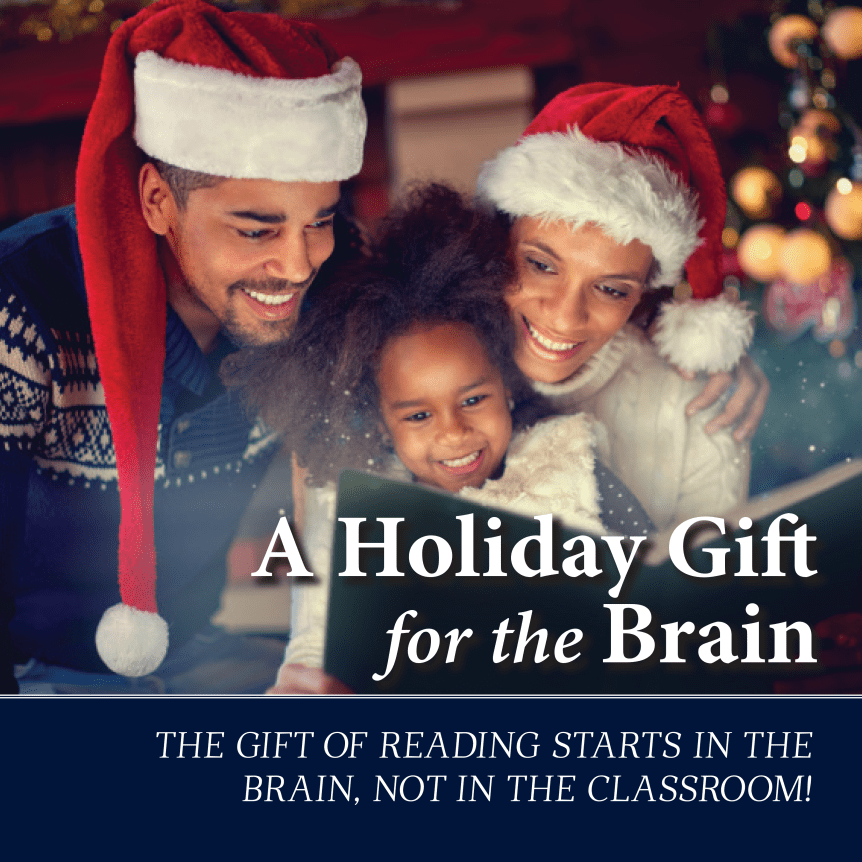The gift of reading starts in the brain, not in the classroom!
Excitement spread across the face of my daughter-in-law as she opened the present and saw the books! She smelled them and hugged them for they meant that she was getting to go on an incredible journey soon and I knew exactly what she was feeling because that is the way I feel in the presence of books. My husband looked at both of us like we were crazy! He said y’all remind of this girl who I went to school with who was so excited the day the teacher announced we were going to learn cursive writing and multiplication. He said I was thinking here I am stuck in the minimal correction facility every day instead of getting to be outside hunting and fishing and she’s excited? The difference is the joy of learning.
Learning to learn is and enjoying learning is an incredible gift which I know from personal experience because it is a gift that I get to see unwrapped every day! The process of learning starts in the womb as the brain forms synaptic connections and patterns that begin to fire together and wire together making connections that will last a lifetime. A child can tell its mother’s voice at birth because it is a familiar pattern and cadence. “Talking, reading, and playing a variety of music can help stimulate baby’s senses and improve brain development while in the womb”, according to Dr. Michael Roizen. “Exposure to different sounds and scenes is essentially what helps establish connections from one set of neurons—the nerve cells of the brain—to another. This is how we all learn.” One study even found that saying a fake word over and over in late pregnancy boosted the child’s ability to discern that same word after birth. They could discern this by neural signals emitted by the babies that showed they recognized the pitch and vowel changes in the fake word. The babies who heard the recording most frequently displayed the strongest response, suggesting that infant language learning begins in utero. So exactly when should you start reading to your baby in the womb? At about six months along, a baby is already quite familiar with the sounds of the womb, from the mother’s heartbeat to digestive sounds. From outside the womb, sounds are extremely clear, although about 10 decibels lower. This is just the beginning of the gift of reading and loving to learn.
When should you stop reading to your child? NEVER! Many parents assume that once the child begins to learn to read that they should stop reading to them and this is a myth! Reading aloud is one of the most powerful ways to pattern reading and the way that readers solve issues in reading. I encourage all parents to read chapter books above the children’s reading levels as this introduces new vocabulary as well as word attack skills, enunciation, characterization, interactions with the texts and so much more.
The journey to reading must be approached is a scientific way to make sure the brain has the necessary skills to implement the reading process. After all, reading doesn’t start in the classroom, it starts in the brain. Many cognitive skills are required for the process of reading including but not limited to auditory processing skills, memory, and processing speed. Addressing all of the core cognitive skills starts with knowing which skills weak and which skills are strong. Let’s examine just one word in this process:cat. The brain must recognize the letters visually, connect them to sounds they make when combined in that particular code, blend those sounds then access the stored file of memory linked to that word to connect the sound/code/word to derive meaning. All of this happens in nanoseconds when the brain has automatized the process of reading but takes time when the learner is still new to the process. Each letter is associated with multiple sounds when combined in different combinations. Even though we only have 26 letters, the English language has over 44 sound combinations in our linguistic system not including the words we have incorporated from other languages. This makes the challenge of reading the greatest feat a child accomplishes in their young years. Did you know reading requires more brain power than walking and requires a lot more training? Most people are unaware of this and assume that this is something the school just teaches and the kids pick it up naturally but the process of language encoding and decoding is not a natural process like speech. Even with speech we spend time training our kids to enunciate and correct their sounds or we would all walk around calling water by a different name like wawa!
If a child struggles with vision, we take them to an optometrist and get them glasses or other assistance. The same can be said for hearing and audiologist, illnesses and pediatricians or specialists and dentists and teeth. So why then are we so prone to ignore the brain and understanding the strengths and weaknesses, going to a cognitive specialist for a quick checkup and diagnostic then getting assistance to help ourselves be as efficient at learning and reading as one can be? Is it time you had a brain checkup for your child’s learning abilities? Why should a child struggle to learn to read when identifying the weak skills in the brain and addressing them early on could set them up for success in he classroom? Give the gift of reading and learning for a lifetime!








